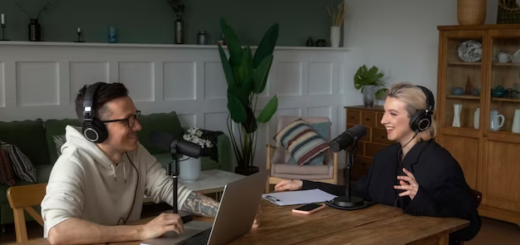Guidelines to Becoming a Distinguished Diplomat

Navigating the world of international relations and diplomacy can be a challenge. Yet, the role of a diplomat, particularly a distinguished representative, remains an enticing prospect for many.
This comprehensive guide sheds light on the pathway to becoming a reputable diplomat, outlining key responsibilities, the necessary qualifications, and the steps involved in this career trajectory.
The Role and Responsibilities of a Diplomat
A diplomat, specifically a distinguished representative, resides in a foreign nation to supervise an embassy or consulate. While some hold roles within administrative entities or act as delegates at international institutions like the United Nations, their primary duty remains to uphold the interests of their homeland.
So what steps are involved in evolving into such a notable representative?
Duties of a Diplomat
A diplomat’s role is multifaceted, entailing a variety of tasks. Generally, the responsibilities encompass:
- Providing updates to the homeland about the host country’s political and economic landscapes;
- Formulating foreign policies that dictate the terms of the relationship with the host nation;
- Overseeing and managing the embassy team;
- Standing as a representative of their homeland at diverse international events;
- Welcoming and entertaining foreign dignitaries at the embassy;
- Ensuring the safety and well-being of personnel affiliated with their home country;
- Offering assistance to their homeland’s nationals residing in the foreign nation during exigent situations.
Pathway to Diplomacy
One’s academic pursuits play a pivotal role in laying the foundation for a diplomatic career. While there isn’t a singular degree that paves the way, relevant fields of study include political science, history, international relations, and others. Proficiency in multiple languages is also paramount as it equips diplomats to communicate efficiently in diverse regions:
- Apart from formal education, hands-on experiences like internships or volunteering stints with organizations focused on foreign relations can be invaluable. Exposure to diverse cultures, honing language skills, and understanding global dynamics firsthand are pivotal experiences that contribute to a robust profile;
- After accomplishing academic credentials and acquiring relevant experiences, the next progression is typically to become a foreign service officer (FSO). In many nations, including the USA, FSO aspirants undergo a rigorous selection process that includes examinations, interviews, and comprehensive screenings.
It’s noteworthy that most distinguished representatives have a foundation as foreign service officers, having demonstrated excellence throughout their tenure. Although some diplomatic roles might be open for application, a significant number are appointed positions. For instance, in the USA, the President selects the diplomat, pending approval following a Senate review.
Additional Insights and Recommendations
Becoming a reputable diplomat demands more than just academic accomplishments and relevant experience. It’s a profession that requires resilience, adaptability, and impeccable interpersonal skills. Cultivating a global network, staying updated with global events, and consistently demonstrating leadership are pivotal.
Additionally, it’s beneficial to seek mentorship from experienced diplomats. Their insights, experiences, and guidance can offer invaluable perspectives, helping budding diplomats navigate the intricate world of international relations.

To sum it up, the journey to becoming a diplomat is multifaceted, demanding a blend of education, experience, and personal attributes. Yet, for those who are committed, it’s a rewarding career that offers a unique vantage point on global affairs, bridging nations and cultures.
Prerequisites in Diplomatic Expertise
For one to be conferred with a position of high diplomatic stature, there are certain indispensable skills that need mastery. The proficiency of a high-ranking diplomat should exceed the ordinary:
- Effective Communication: Whether it’s through eloquent speech or articulate writing, a diplomat needs to convey messages with clarity and precision. Serving as their nation’s voice, they bridge information gaps between their homeland and host country. Consider enhancing this skill with communication courses;
- Leadership Prowess: As the foremost envoy in an embassy, managing and leading a team effectively is vital. An ability to inspire respect, cultivate teamwork, and oversee staff operations is imperative. Leadership training can hone such capabilities;
- Strategic Negotiation: A pivotal trait of a diplomat is negotiation finesse. It’s crucial to assertively convey the homeland’s interests while discerning when conciliation is apt. Courses in negotiation can be invaluable;
- Cultural Proficiency: Residing in a foreign nation necessitates a comprehensive knowledge of its cultural and historical intricacies. Mastery of the local language and customs prevents inadvertent cultural missteps. Courses in cultural studies can be beneficial;
- Tenacity: Diplomatic roles come with their share of challenges. Adaptability, resilience, and a calm demeanor, even amidst the tumult, are quintessential. Training in resilience can be instrumental in developing such attributes.
Goodwill Envoys: A Different Diplomatic Avenue:
Distinct from envoys stationed at embassies, “goodwill envoys” often emerge from non-diplomatic backgrounds. Entities such as NGOs or global institutions, like the United Nations, nominate them to champion specific causes internationally. Organized goodwill missions facilitate these envoys, where formal diplomatic credentials might simply be a letter of introduction. Their prominence often stems from celebrity status, making them influential voices. For instance, UNICEF pioneered this approach, appointing actor Danny Kaye as an Ambassador-at-Large in 1954, leveraging his influence.
The Significance of Diplomats in the Global Arena
In the tapestry of international relations, envoys serve as cornerstone threads. Stationed overseas and helming their homeland’s embassies, these high-ranking representatives wield significant influence. They champion their nation’s interests and possess the leverage to mold policy decisions. Their interventions, especially during crises such as human rights infringements or emergencies, can alter the course of events profoundly. Regardless of the complexities, a proficient diplomat constantly strives for harmony and resolution.
Conclusion
A career in diplomacy isn’t solely about possessing the right skills or qualifications. It is equally about understanding the geo-political landscape, forging meaningful alliances, and staying abreast of global events. Networking with seasoned diplomats can provide invaluable insights and pave the way for a successful tenure. Moreover, understanding the intricacies of international law, participating in mock diplomatic simulations, and attending global summits can enhance one’s readiness for this coveted role.
Diplomacy is more than a profession; it’s a commitment to bridging cultures, fostering peace, and representing a nation’s best interests on the global stage. With the right blend of skills, experiences, and continuous learning, aspiring diplomats can carve a niche in this challenging yet rewarding domain.


